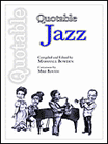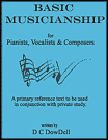- Basic Musicianship
- Blues
- Fake Books
- Guitar Tab
- Improvisation
- MIDI
- Play-a-Longs
- Sheet Music
- Theory Books
- Advertise
- BebopBot Crawler
- Contact Us
- Copyright & Trademark
- Digital Clock
- Link Information
- Staff & Tab Paper
- Password Encrypt
- Privacy Policy
- Site Map
- Site Search
- Support This Site
- Artist Mantra
- Bandleader Rules
- Dating Musicians
- Definition
- The Ensemble
- Etymology
- Great Day in Harlem
- History of the Sax
- How to Play Sax
- How to Sing Blues
- Jive Terms
- Metheny IAJE Speech
- MIDI
- Milestones
- MLK in Berlin 1964
- Music Mastery
- Musician Tips
- Old for the Gig
- Public Domain
- Quotations
- Sideman Rules
- Styles
- Timeline
- Yogi Berra Interview
- 12 Bar Blues
- 16 Bar Blues
- ii-V-I Cadence Excercise
- Circle of Fifths
- Chord Chart
- Chord Progressions
- Chord Theory
- Glossary
- Grand Staff
- Guitar Chords Tool
- Harmony from Scales
- Improvisation
- Improvisation Methods
- Intervals
- Modes Chart
- Piano Chords Chart
- Piano Scales Chart
- Piano Chord/Scale Tool
- Piano Chord Voicing
- Reharmonization
- Jazz Scales Chart
- Rootless Voicings
- Scale Degrees
- Seventh Chords
- Soloing Scales & Chords
- Key Transposition
- Tritone Substitution
- Turnaround
- Monthly Festival Guide
- Berks Festival
- Caramoor Festival
- Cape Town Festival
- French Quarter Festival
- Havana Festival
- IAJE
- Appreciation Month
- JVC Festival
- Lionel Hampton Festival
- London Festival
- Monterey Festival
- Monterey Festival Tour
- Montreal Festival
- Montreux Festival
- Newport Festival
- Newport Festival Tour
- Newport Beach Party
- New Orleans Festival
- No. Sea Rotterdam
- No. Sea Curacao
- San Francisco Festival
- Women Festival







